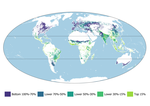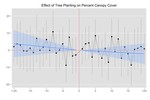Bill Schultz
Biography
I’m a quantitative social scientist specializing in policy research. Substantively, I got my start studying participatory policy interventions and the effectiveness of environmental programs. I’m especially interested in equity issues associated with environmental programs. Methodologically, I’m interested in how researchers weigh research design choices, difficulties raised by sequential outcome measures, causal inference, and debates about how statistical evidence should inform policy. My work employs a flexible mix of game theory, correlational analysis, quasi-experimental analysis, and experimentation.
I’m currently an Assistant Research Professor in the McCourt School of Public Policy at Georgetown University, working in the Better Governance Lab. I’m also an Associate Scholar affiliated with Florida State University, and I spend some of my time working for the General Service Administration’s Office of Evaluation Sciences as a Data Scientist. On this website, you will find information about some of my research, courses I’ve taught in the past, and my CV. Thank you for visiting!
Interests
- Resource management
- Conservation and restoration
- Participatory policymaking
- Geospatial data
- Causal inference
- Statistical learning
- Evidence-based policy
Education
PhD in Political Science, 2020
Florida State University
MA in Political Science, 2017
Florida State University
BSc in Business Management, 2013
University of Maryland
BA in Government and Politics, 2013
University of Maryland

